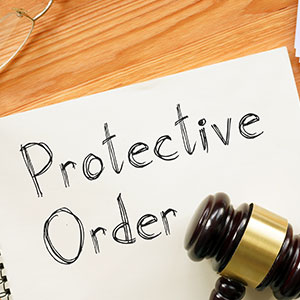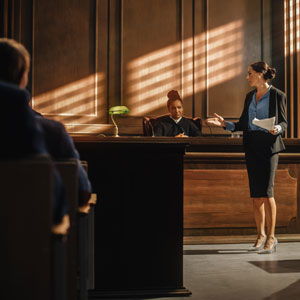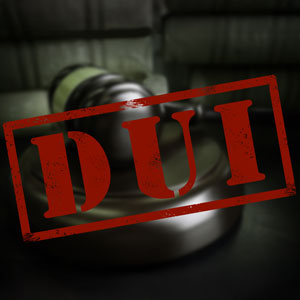
In this article, you can discover… How identity theft is defined and understood in Colorado. What to do if you are accused of identity theft. How an attorney can help you challenge accusations of identity theft. What Does Identity Theft Mean In Colorado, And What Forms Does It Take? Identity theft is committed in Colorado when someone’s personal identifying information, financial identifying information, or financial device is used without their lawful permission or authority and with the intent to obtain cash, credit, property, services, or things of value. While many people associate identity theft with the theft and misuse of a Social Security number, it can also be committed when someone uses a stolen credit card to make purchases, writes a fake check, or uses someone else’s driver’s license to obtain something. If I Am Accused Of Identity Theft In Colorado, What Steps Should I Immediately Take? If you are accused of identity theft, the most important thing you can do is to invoke your…Read More

In this article, you can discover… What COCCA is, and how it differs from federal charges. Common mistakes to avoid if you are facing COCCA charges. How an attorney can help you navigate COCCA and protect your rights. What Is COCCA In Colorado Criminal Law, And How Does It Differ From Federal RICO Charges? COCCA stands for the “Colorado Organized Crime Control Act”. It is modeled after federal RICO organized crime laws but applies uniquely in the state of Colorado. When you are charged with a COCCA violation, you are being charged with a pattern of unlawful activity (as opposed to an isolated criminal act) through and on behalf of an organization. For example, if you are alleged to have been dealing illegal substances for a cartel. What Are Some Signs That I Am Being Investigated For A COCCA Violation? It can be very difficult to tell if you are being investigated for a COCCA violation. Law enforcement tends to be quite secretive and private…Read More

In this article, you can discover… When to expect your protection order hearing in Colorado. What evidence to bring to your protection order hearing. How to defend yourself against false accusations during a hearing. How Soon After Being Served Will My Protection Order Hearing Be Scheduled? A protection order hearing is scheduled for two weeks from the date that the court grants the petitioner a temporary protection order. The petitioner must serve the person who is meant to receive the protection order, and this could see you served anywhere from two weeks to one day before the scheduled hearing. You are required to abide by the temporary protection order once you have been served with it. At the protection order hearing, a judge will hear the evidence against you and the evidence in your defense and will determine if the temporary protection order is to be canceled or made permanent. What Evidence In My Defense Should I Bring To A Colorado Protection Order Hearing? Unbiased…Read More

In this article, you can discover… What happens when you accidentally violate a protection order. How to respond if the protected party reaches out to you first. Steps to handle social media and texting in light of a protection order. What Counts As An Accidental Violation Of A Protection Order Under Colorado Law? If you do not know that a protection order is still in place or do not understand the terms of the protection order, you could find yourself accidentally violating the order by making a phone call, texting that person, or otherwise reaching out. These count as accidental violations of the protection order, and could bring serious legal consequences. What Happens If You Accidentally Encounter The Protected Person In Public? On its face, accidentally running into a protected party in public is not illegal. However, how you respond to the encounter is very important. It is best, once you notice the protected party, to remove yourself from the situation. Do not look at,…Read More

The consequences of a DUI conviction in Colorado can extend far beyond fines and court appearances, often impacting your ability to drive. Whether it’s a first-time offense or a repeat violation, your driving privileges will likely be restricted, suspended, or revoked. This article explores: The potential length of license suspensions. Options for reinstatement and restricted licenses. Penalties for driving with a suspended license. What Happens To My Driver’s License After A DUI Conviction In Colorado? The outcome of your driver’s license after a DUI conviction in Colorado depends on several factors, including whether the conviction is for Driving Under the Influence (DUI) or the lesser offense of Driving While Ability Impaired (DWAI). Each carries different consequences, particularly in how the Department of Motor Vehicles (DMV) handles the situation. It’s important to understand that a criminal conviction and the DMV’s administrative actions are two separate processes. While the DMV often relies on the criminal court’s findings, it operates independently to determine the status of your driver’s…Read More

In this article, you can discover… The legal penalties for violating a protection order in Colorado. How violating a protection order can impact custody issues. Steps you can take to avoid the legal fallout from violating a protection order. Is Violating A Protection Order In Colorado A Misdemeanor Or Felony Offense? In Colorado, violating a protection order is a misdemeanor. However, if you commit a violation of a protection order as an act of domestic violence and have three or more prior domestic violence convictions, this can be charged as a “habitual domestic violence offense”, which is a felony. If you are convicted of violating a protection order, a judge will determine your legal penalties. These could include going to jail for up to 364 days, considerable fines, or probation and required treatment classes. Does A Protection Order Violation Stay On My Permanent Criminal Record In Colorado? If you are convicted of violating a protection order, it becomes a part of your permanent criminal record…Read More

Assault charges in Colorado vary significantly, from misdemeanours to serious felonies, with penalties influenced by factors like the extent of the injuries, the intent behind the act, and the use of a weapon. Gaining a clear understanding of the different degrees of assault is essential for protecting your rights and navigating potential legal consequences. In this article, we’ll break down key concepts like: The distinctions between first-, second-, and third-degree assault. How strangulation fits into Colorado's assault laws. Common defenses that can be used to challenge assault charges. What’s The Difference Between First-Degree, Second-Degree, And Third-Degree Assault In Colorado? Assault charges in Colorado are classified into three degrees, with distinctions based on the severity of injuries, the intent behind the act, whether weapons were involved, and whether the offense is categorized as a felony or misdemeanour. Below is a clear breakdown of each degree of assault: First-Degree Assault First-degree assault is the most severe form of assault under Colorado law. It often involves intentionally causing…Read More

Facing allegations of a sex offense is a deeply distressing experience, often complicated by widespread myths and misinformation. Misunderstandings about how these charges work can lead to unnecessary fear or missed opportunities to build a strong defense. In this article, we’ll break down some of the key areas where people get things wrong. Keep reading to learn about: Why sex offense charges aren’t always harder to defend than other crimes. How myths about physical evidence and intoxication influence perceptions. The truth about sex offender registration and record sealing in Colorado. Myth #1: Most Sexual Assaults Are Committed By Strangers No, most cases of sexual assault do not involve strangers. Instead, they typically occur between people who know each other, such as friends, acquaintances, or family members. This is especially true in cases involving allegations of sexual assault on a child or marital rape. The idea of "stranger rape" is a common misconception, but it is relatively rare compared to the cases that typically arise in…Read More

Facing a false accusation is an incredibly stressful experience, especially when it involves serious charges like sexual assault. While it may feel natural to want to explain your side of the story to law enforcement, doing so without proper legal representation is one of the biggest mistakes you can make. This article explores: Why contacting law enforcement without a lawyer is risky. Steps to take immediately after being accused. How an experienced attorney can protect your rights and build a strong defense. Should I Contact The Police After Becoming Aware Of A False Sexual Assault Accusation Against Me? In most cases, the answer is no. If you suspect you have been falsely accused of a serious crime, such as sexual assault, it is crucial to avoid contacting law enforcement or speaking to any witnesses about the incident. Here’s why: Miranda Rights May Not Apply If you are not in custody, the police are not required to advise you of your right to an attorney or…Read More

If police spot you taking risks behind the wheel, you could face careless driving charges. While the idea of getting a fine for bad driving may sound minor, the consequences in Colorado are serious. This article explains what drivers need to know about careless driving charges, including: What careless driving is, and how it differs from reckless driving. Circumstances that can aggravate careless driving charges. The consequences and results of a careless driving conviction and how to avoid them. What Is Careless Driving Under Colorado Law? Careless driving is a traffic offense for anyone "operating a motor vehicle without due regard for the road and surroundings." Although similar to the more serious reckless driving charge, the standards for careless driving are less strict, making it easier to be charged and convicted. How Will Police Officers Decide Between A Careless Driving And A Reckless Driving Charge? Many factors distinguish reckless driving from careless driving, but the line between them can be narrow and subjective. The distinction…Read More